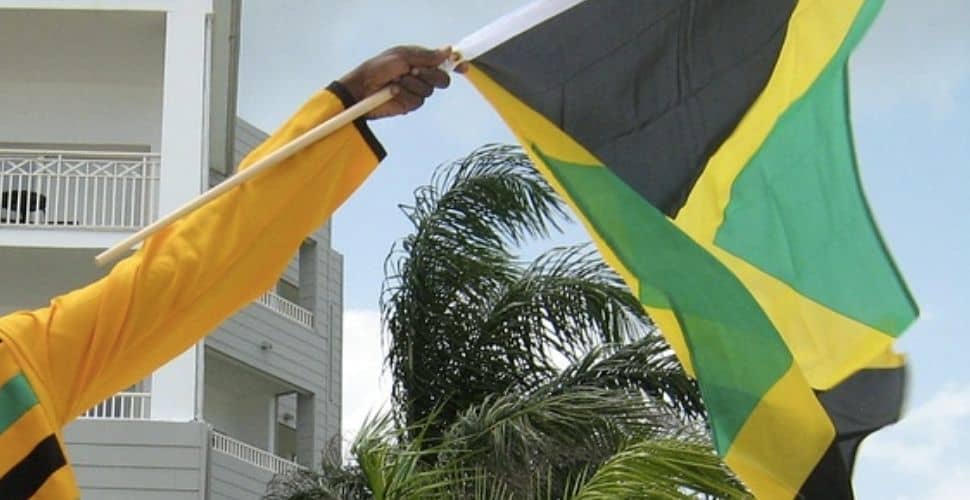Do you think enough is being done to remember the victims of slavery and the transatlantic slave trade? Do memorials go far enough? Share your thoughts here!
At a time when the Jamaican people are protesting and calling on the U.K. to pay reparations for slavery, Prince William and Kate Middleton are touring the former British Caribbean colonies in celebration of the Queen’s Platinum Jubilee, reports the Independent. It is important to recognize that the point of the Caribbean tour that the royals are on is designed to strengthen Britain’s ties with Commonwealth nations as Queen Elizabeth marks 70 years on the throne.
Friday March 25 marks the Day of Remembrance of the Victims of Slavery and the Transatlantic Slave Trade. On the tour, Prince William said the anniversary of such a day requires a moment for “reflection.” But Jamaica has made it abundantly clear that “reflection” on behalf of the monarchy is not enough. The ties need to be severed.
This symbolic display of British imperialism stands in direct opposition to the point of this day of remembrance of transatlantic slavery. How the monarchy shows their recognition of such an important day bears a heavy responsibility.
Tone-deaf
Not only is the colonial spectacle tone-deaf, but it points to a much larger conversation about how the colonial legacies of slavery are ever-present. The British crown has failed to address and make appropriate reparations for the atrocities of chattel slavery, and it suffices to say that the former British colonies have had enough and are demanding that they be heard.
A spokesperson of Kensington palace stated that the royal couple were “very much looking forward” to having an opportunity to thank communities across the Caribbean for the support they had shown the Queen. However, those communities which have suffered the transgenerational effects of transatlantic slavery and colonialism are require more than this gesture.
Collective protests and the open letter
During the royal tour, a protest calling for reparations will take place in Jamaica at the British High Commission in the capital city of Kingston. The protest is organized by the Advocates network, a human rights coalition of Jamaican activists and equalities organizations.
The collective has written an open letter to the monarchy that is signed by hundreds of figures from wide-ranging sectors of the arts, politics, and business. The letter reads:
“We will not participate in your Platinum Jubilee celebration!”
“We see no reason to celebrate 70 years of the ascension of your grandmother to the British throne because her leadership, and that of her predecessors, have perpetuated the greatest human rights tragedy in the history of humankind.”
“We are of the view that an apology for British crimes against humanity, including but not limited to, the exploitation of the indigenous people of Jamaica, the transatlantic trafficking of Africans, the enslavement of Africans, indentureship and colonisation is necessary to begin a process of healing, forgiveness, reconciliation and compensation.”
60 years of independence and still 60 reasons for reparations
Included in the letter is a 60-point breakdown of 60 reasons warranting an apology and reparations from the crown in keeping with Jamaica’s 60th anniversary of independence. Queen Elizabeth remains the head of state for Jamaica and 13 other countries that were once British colonies. This call for recognition and reparations from the monarchy includes Jamaica’s desire and right to have full independence in every sense.
Carolyn Cooper, a professor at the University of West Indies in Jamaica explained to the Independent, “it’s the need for mental emancipation that is so important… we have to complete the decolonisation process and that means getting rid of the Queen as head of state.”
The collective that is leading the protest is asking for the British crown to apologize and make reparations for their hand in slavery.
It is time that the process of healing and decolonization are taken seriously, and the monarchy parading around the former colonies symbolizing its colonial ties is not how justice and reconciliation are established.
As writer Toni Morrison famously stated, “there is no place you or I can go, to think about, or not think about, to summon the presences of, or recollect the absences of slaves.” Memorials can only do so much to commemorate the victims of slavery and their struggles. Jamaica is demanding apologies and reparations and the collective response and protest to the royal tour demonstrates how necessary it is that the monarchy does just that, and much more.







Freedom United is interested in hearing from our community and welcomes relevant, informed comments, advice, and insights that advance the conversation around our campaigns and advocacy. We value inclusivity and respect within our community. To be approved, your comments should be civil.
So how far back do we ask for reparations? As pointed out nearly every country would be able to ask for reparations from occupiers at a date in the past. Is it best not to accept that there are things that we need to learn about our history and move on and not cause more division?
dont knwo what or who is royal is in book romance they write often so worthless to anyone but boinary relation – to pay or not ot pay for visit. ask that too.
It’s too complicated. Members of most nations and races, including white British have suffered slavery at some point in their history and many black Africans were involved in and profited from the slave trade.
They shouldn’t get reparations when no one who was a slave there is still alive
It is time to have a global society that recognises our humanity and is not oppressive. We would share global resources so everyone’s needs are met. This will involve a major redistribution of wealth.